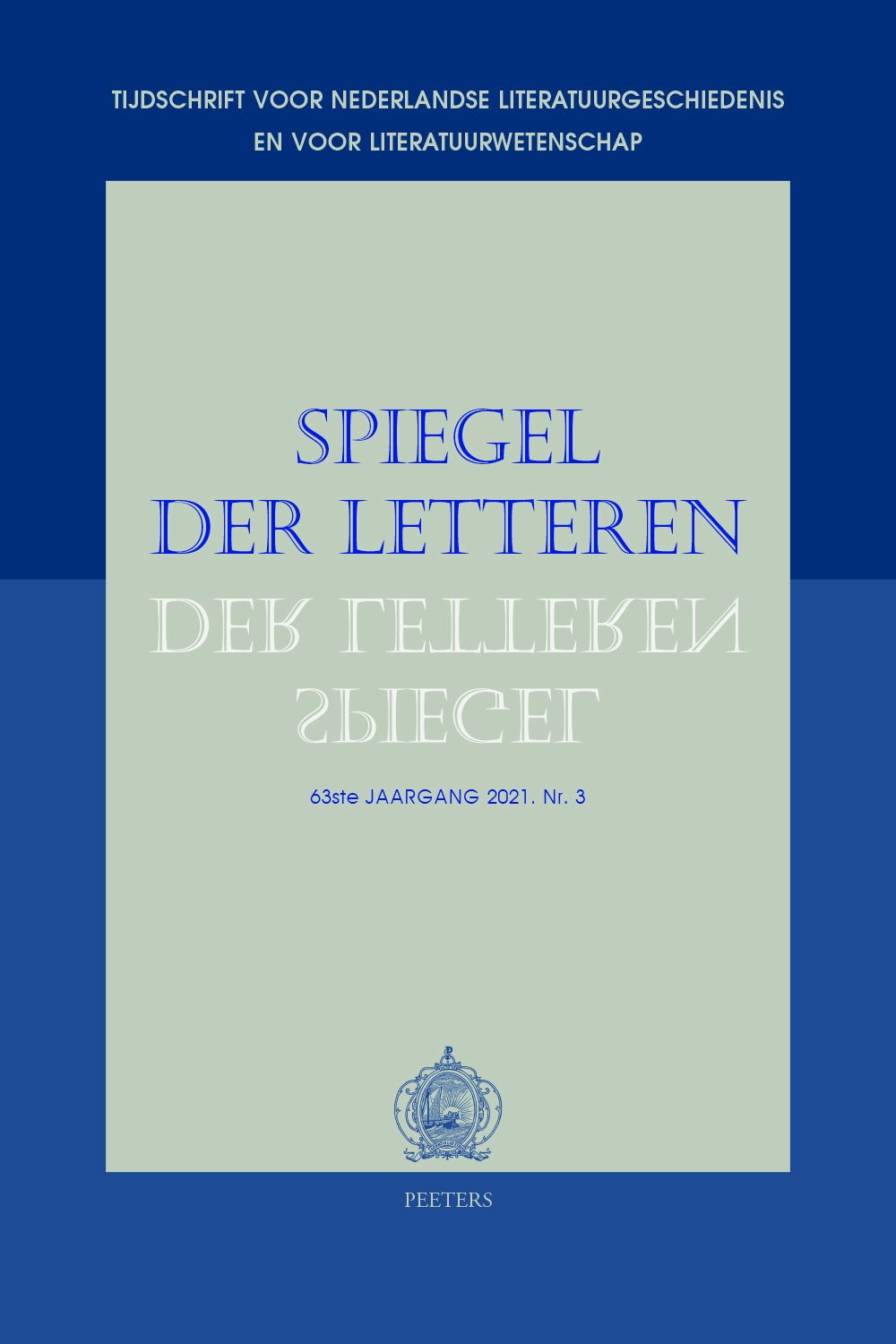 previous article in this issue previous article in this issue | next article in this issue  |

Preview first page |
Document Details : Title: De kritische dimensie van de hedendaagse historische roman Author(s): STROOBANTS, Steven Journal: Spiegel der Letteren Volume: 53 Issue: 2 Date: 2011 Pages: 219-245 DOI: 10.2143/SDL.53.2.2119624 Abstract : This article deals with the different ways in which late capitalist society is presented and possibly criticized in one traditional and two innovative historical novels. Based on Stephen Greenblatts discussion of Frederic Jameson’s and Jean-François Lyotard’s interpretation of the critical capacities of late capitalism, this article offers an analysis of the relationship between society and, respectively, the economy, the individual, language and history in Thomas Rosenboom’s Publieke werken (1999), Sybren Polet’s De geboorte van een geest (1974) and Koen Peeters’ Grote Europese Roman (2007). In these three novels, the economy plays a prominent role. According to Jameson, capitalism turns literature and culture into masquerades of economic reality, thus installing boundaries and differences between economy and culture. According to Lyotard, capitalism unifies everything, including culture and literature. The article studies the recent historical novel from this perspective and asks whether the genre expresses differentiation or homogenization of social domains. |
|


